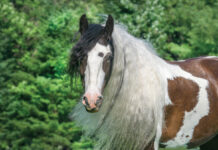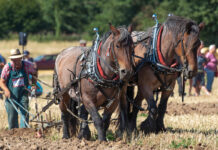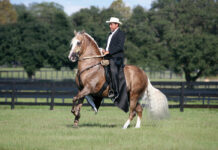History of the Paso Fino
The Paso Fino’s earliest ancestry includes the Barb, Andalusian and the gaited Spanish Jennet, which came to Santo Domingo (Dominican Republic) with Christopher Columbus to be used as conquistadors’ mounts throughout the 1500s.
The blood of the Spanish Jennet (now extinct) dominated the future of the Paso Fino; the unusual inherited gaits are the breed’s hallmark. The Paso Fino flourished in Puerto Rico and Columbia. Today, the Paso Fino is shown in its traditional tack and is renowned as a competitive trail horse, possessing both speed and stamina.
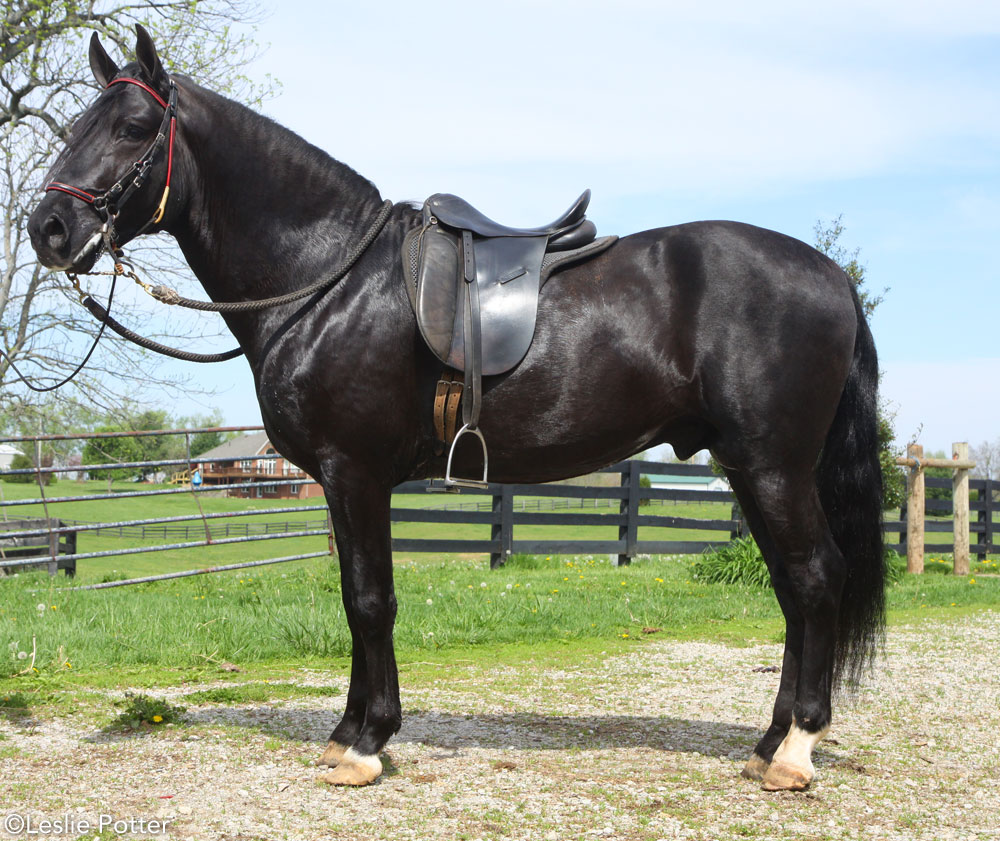
Paso Fino Characteristics and Conformation
Although the Paso Fino walks and canters, it does not trot. Its natural, highly stylized gaits include the paso fino (slowest), paso corto (the preferred gait which is as fast as the trot) and paso largo (fastest). Each foot in the comfortable gait strikes the ground independently and in an even rhythm.
The Paso Fino is a slight but elegant and refined animal standing from 13.2 to 15.2 hands high. All colors and markings are found, including pinto and palomino.
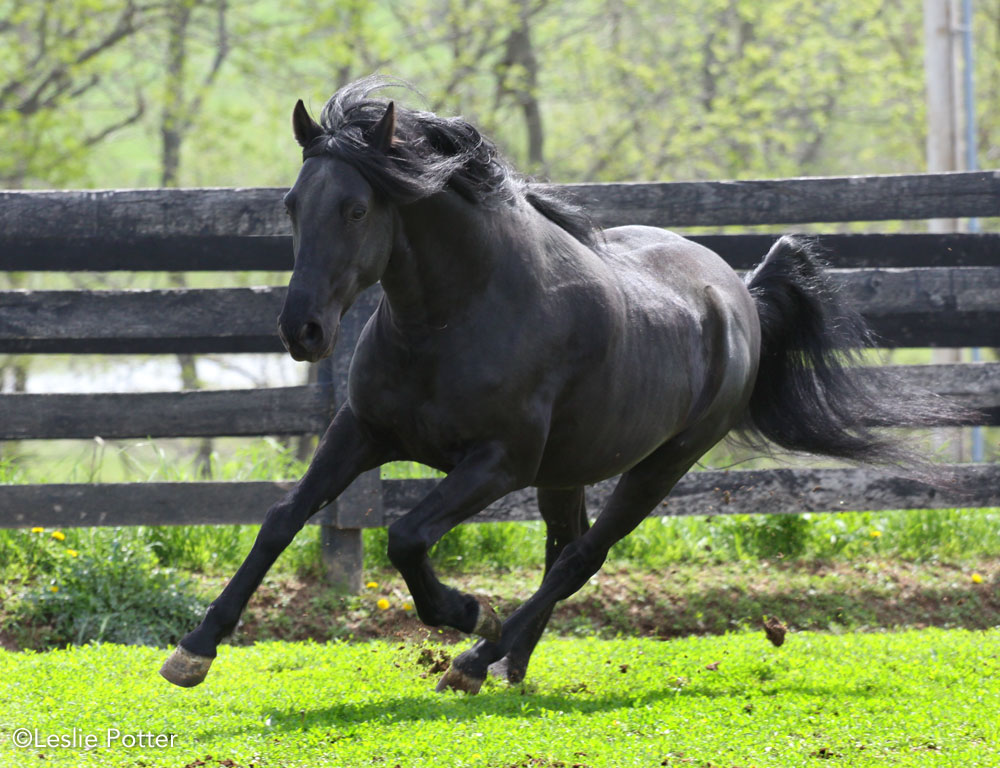
For more information
- The Paso Fino Horse Association, www.pfha.org
Further Reading:

